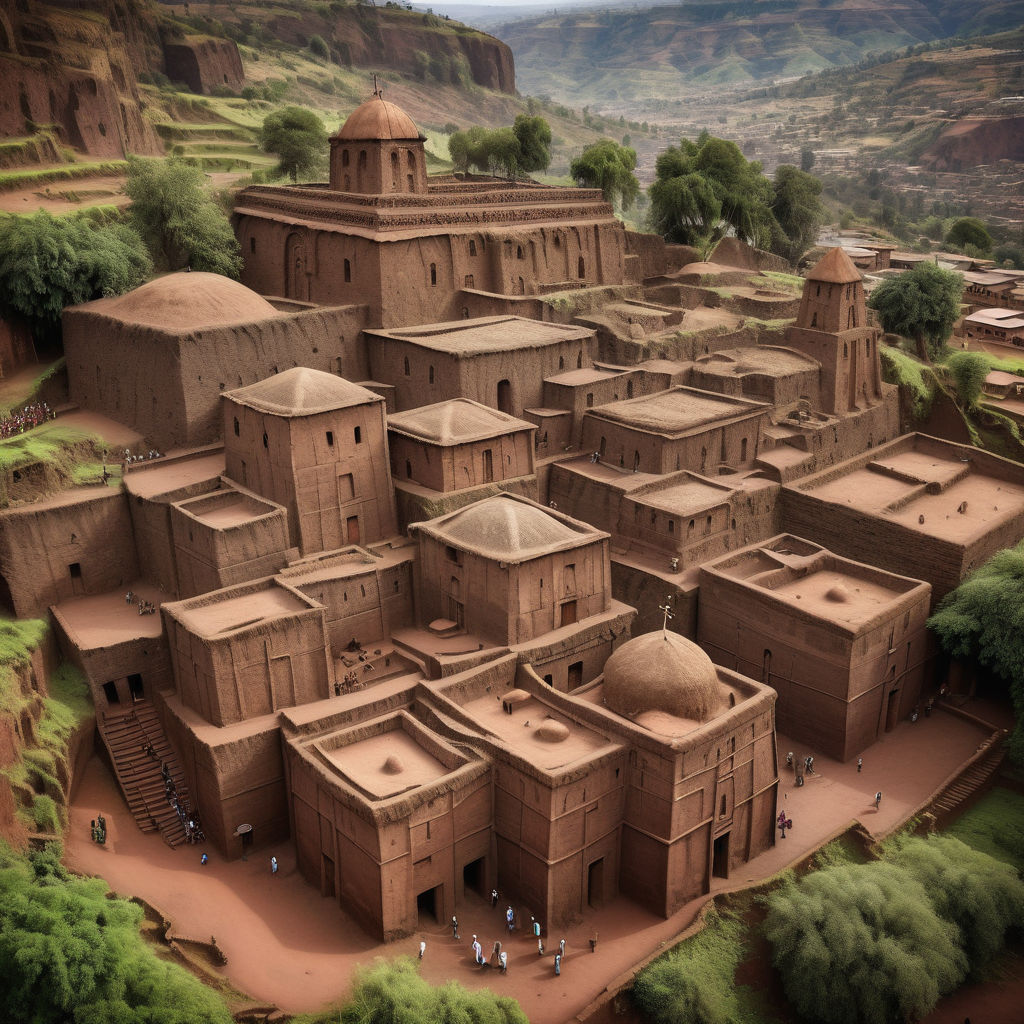Discover Ethiopia: A Journey Through Its Rich Cultural Heritage and Social Dynamics
Exploring Ethiopia’s Vibrant Culture, Social Interactions, and Cross-cultural Understanding

Introduction to Ethiopia
Ethiopia, officially known as the Federal Democratic Republic of Ethiopia, is located in the Horn of Africa. It is bordered by Eritrea to the north, Djibouti and Somalia to the east, Kenya to the south, and Sudan and South Sudan to the west. Major cities include Addis Ababa (the capital), Mekelle, Gondar, and Dire Dawa. Ethiopia’s rich cultural heritage is a blend of over 80 ethnic groups, each with its unique languages, traditions, and customs. The country is renowned for its ancient history, being home to one of the oldest human fossils, the Rock-Hewn Churches of Lalibela, and the ancient city of Aksum. Ethiopian culture is deeply rooted in Orthodox Christianity, Islam, and indigenous beliefs, reflected in its festivals, music, dance, and cuisine.
Cross-national and Cross-cultural Understanding
Ethiopians generally engage with other cultures with a sense of curiosity, respect, and hospitality. The country’s history as one of the oldest nations in the world, with deep-rooted traditions and a diverse population, has fostered a strong appreciation for cultural diversity and international interaction. Ethiopia actively promotes cross-cultural understanding through various initiatives and programs. Significant cultural exchanges and educational programs highlight Ethiopia’s commitment to fostering global engagement. Institutions such as the Ethiopian Ministry of Culture and Tourism and the Institute of Ethiopian Studies promote Ethiopian culture internationally through events, exhibitions, and language courses. Additionally, the government supports scholarships and exchange programs that facilitate academic and cultural exchanges, fostering mutual understanding. International partnerships also enhance cross-cultural understanding. Ethiopia is an active member of international organizations such as the United Nations, the African Union, and the Intergovernmental Authority on Development (IGAD), promoting cultural cooperation and exchange. These partnerships facilitate student exchanges, collaborative research projects, and cultural festivals, strengthening Ethiopia’s cultural ties with the world.
Interactions and Social Dynamics
Interactions between Ethiopians and foreigners are typically characterized by warmth, hospitality, and a strong sense of community. Ethiopian social behaviors are influenced by cultural values such as "hospitality," "family," and "respect for elders." These values are often reflected in the way Ethiopians engage with outsiders. Social behaviors in Ethiopia emphasize respect and politeness in initial interactions, quickly becoming more informal and warm. Greetings often involve a handshake, and among close acquaintances, a kiss on the cheek. Hospitality is a significant aspect of Ethiopian culture, and guests are often treated with great care and generosity, frequently invited to share meals and participate in social gatherings. Communication styles in Ethiopia are generally indirect and polite. Ethiopians value harmony and avoiding confrontation, often using subtle language and non-verbal cues to convey their messages. Understanding these subtleties can be challenging for foreigners, but learning the language and cultural norms can help bridge this gap. Language plays a crucial role in facilitating interactions. Amharic is the official language of Ethiopia, while Oromo, Tigrinya, and Somali are also widely spoken. English is commonly used in business, government, and education, especially among the younger generation. Multilingualism is valued and encouraged, especially in educational and professional settings.
Views on Dating and Relationships
Dating and relationships between Ethiopians and foreigners are becoming more common, particularly among younger generations and in urban areas. Ethiopian society tends to be conservative about relationships, heavily influenced by cultural and religious norms. However, there is a growing openness towards cross-cultural relationships as opportunities for international exposure increase. In Ethiopian dating culture, there is often a strong emphasis on family approval and social harmony. Relationships are typically pursued with a long-term perspective, and traditional gender roles can play a significant role. Men are often expected to be providers and protectors, while women are expected to be nurturing and supportive. Cultural expectations and traditions, such as the importance of family approval and adherence to religious practices, can impact relationships. Understanding and respecting these cultural norms is essential for successful cross-cultural relationships in Ethiopia.
Marriage and Family
Marrying foreigners is accepted in Ethiopia, though it comes with certain social and familial considerations. Legal considerations for such marriages involve specific regulations governed by Ethiopian civil and religious law. Non-Christian spouses are often required to convert to Christianity, which can be a significant consideration for cross-cultural marriages. Socially, Ethiopian families may initially have reservations about cross-cultural marriages due to concerns about cultural differences and social compatibility. However, acceptance typically increases as relationships develop and families get to know the foreign partner. Family plays a central role in Ethiopian culture, and marrying into an Ethiopian family often involves participating in family gatherings and traditions. Common practices in cross-cultural marriages include celebrating both Ethiopian and foreign traditions, creating a blended cultural environment. For example, a couple might celebrate Ethiopian holidays like Meskel and Timkat alongside holidays from the foreign partner’s culture.